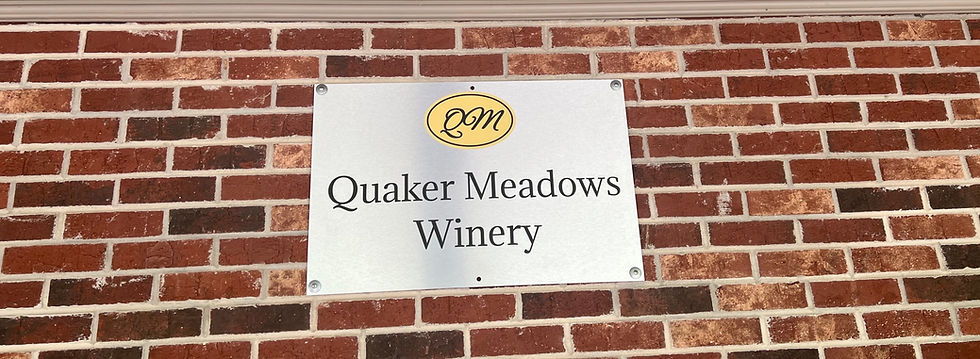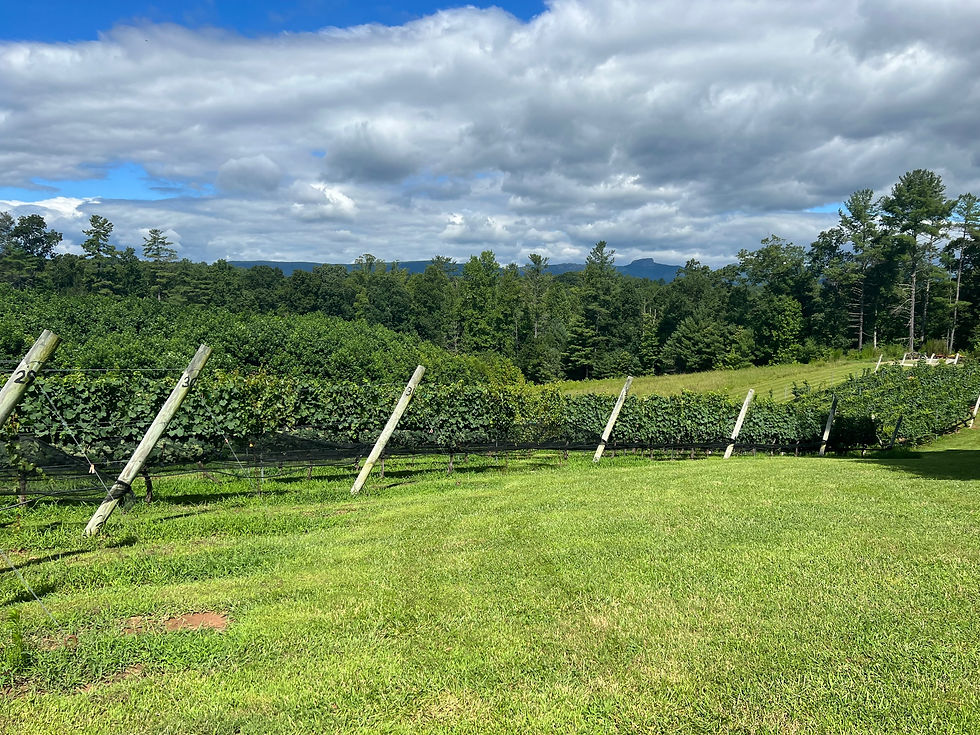Quaker Meadows Winery
- Delayne Martin
- Aug 24, 2023
- 3 min read

Recently while on a trip to Food Matters in Morganton, North Carolina, I asked about their local wine selection. Expecting the typical wines that are more commercially produced, I was shown a Viognier from Quaker Meadows Winery. I have lived in Morganton for the last 20 years, but I had never heard of this winery. I purchased a bottle and immediately googled them. Finding their website, I learned they are located off Highway 181 in northern Burke County. I contacted owner and winemaker Victor Maya, and we set up a date for a tour of his vineyard and winery. He has a small operation with no tasting room and no immediate plans for one. He grows two grape varieties of grapes, Touriga Nacional and Viognier. Victor was gracious and enjoyed talking about wine and how his wine is different.

Victor chose to plant these varieties for two reasons. His father was Portuguese and the Touriga Nacional is native to Portugal. Also the vineyard’s microclimate and its adjacent location to the Linville Gorge makes it an ideal place for Viognier grapes to flourish. Due to the vineyard sitting on a slope, there are times when frost might affect one part of the vineyard but not the other.


We began our tour in the basement of his house, where the operation is housed. He showed me the testing area for sugar levels that resembled a science lab. The first room is the bottling room. Everything takes place here; rinse, fill, corks, capsule, label, and box the wine. Then we moved to the winery where his stainless steel tanks and barrels housed his wine. He treated me to a barrel tasting. I am not sure why, but I love tasting wine from a barrel. It’s fun seeing the winemaker's reaction. Does it need more time to ferment, or is it about ready? He has upgraded to a more gentle de-stemmer that has made the juice extraction quicker.


We discussed the differences in the growing patterns of Viognier and Touriga. The Viognier was planted in 2003, and the Touriga was planted in 2015. The Touriga has thrived in the sloping 2-acre vineyard. Victor says this has been the best growing season so far. The Viognier has flourished as well. The Touriga grapes have to be picked at just the right time. It’s a guessing game of when to pick to get just the right balance between fruit and acidity. Then it’s all hands on deck with neighbors and part-time worker Chris, picking all they can in one day. The Viognier keeps getting ripe until it rots.

He uses extended maceration to extract all the tannins and flavor from the Touriga grapes leaving only skins that are so dry they resemble tissue paper. It is oaked for a year. It has a port-like taste and is able to be enjoyed earlier. The 2019 Touriga will be sold at Food Matters this Fall. He releases his wine twice a year; the red in the fall and the white in the spring. While Victor doesn’t have a recipe or anything written down, much to his daughter’s dismay, his process is 2 years or longer, from picking to bottling.


Next, we moved out to tour the vineyard. The vineyard offers a beautiful view of Table Rock. It slopes down toward Linville Gorge. We discussed how, rather than using bench-grafted vines from California, he propagates his new vines from his own stock. The object is to adapt the vines to the local terroir. Other than the deer, late frost is the most detrimental problem to face in the vineyard. The problem with frost is it damages the primary bud, then the secondary bud replaces it, but it isn’t as durable as the first. If the secondary is damaged, the tertiary replaces and is still less productive than the first two. All this will decrease the fruit produced. As stated earlier, 2023 has been the best growing season so far, with a minimal last frost and a long mild spring.

As with all small vineyards, owners are always looking for extra hands at harvest time. If you are local and want a new experience, be sure to reach out to him through his website.





Comments